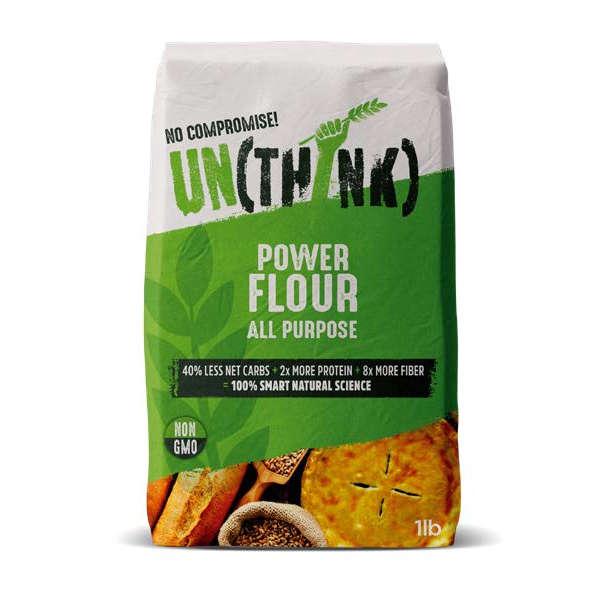
This concept is perceived as empowering and inspirational, connecting emotionally with respondents who relate in a very positive way to the perception that ‘Power’ equates to ‘Health’. It feels young and energetic, giving them the power to eat grain that they normally wouldn’t because of diet restrictions or practices and in so doing giving them options to make healthier choices (“I can see myself baking more if it is as good as it says”). The nutritional benefits are effectively communicated and the proposition is mind-opening, making them think differently about flour which they often perceive as “unhealthy and full of carbohydrates” and convincing them that it offers a healthy solution that doesn’t compromise on the integrity of the food or compromise on taste.
“Let people eat healthier! Less carbs! Less sugars! Less bleached wheat! WOOOO!”
The brand is perceived as an enabler providing respondents with the power of choice regarding healthier foods via the brand proposition statement which is seen as “extremely valuable”, memorable and a clever play on words (“I love grains and power to the people (it) sounds intriguing”). “Most people are addicted to carbs and grains. It’s nice to have a healthy alternative to still feel as if you’re indulging in the carbs with better nutrition” empowering them to recognise their individuality and to take “charge of things or situations instead of being told how or what to do”. It has appeal to those who sometimes cook for others who may have food restrictions as it gives them peace of mind and broadens their options in what they can prepare and offer as long as “the taste and quality are the same as any other flour”.
Respondents feel that the brand is ‘motivated’ and shares the same values as them in relation to healthier eating and caring for the planet - “This brand speaks to me”.
The packaging design is appealing and “the statements are enough to get me to buy this product”, with people liking the imagery.
Consideration could be given to supporting the positivity of boldness of claim with an explanation of how it delivers on its promise - “How is this brand good for the community? Where is the grain from? How are the workers who harvest and process this grain treated and paid? Is the harvesting of this grain good for the planet? What makes this flour revolutionary or sustainable?”
Although one respondent commented that they saw it as “an entertaining allusion to the resurgence of social democratic policies around the world” it’s worth consideration being given to the perception from one respondent who saw this proposition as slightly politicised and perhaps overdramatic for “just a flour product”.
The positive connotations of community associated with the fist/wheatsheaf brand marque far outweigh any risk of being perceived as associated with a political movement.